In 1986, the renovation process was an important turning point, opening up the socialist-oriented market economic thinking, recognizing and encouraging the development of the private economy. Currently, Resolution No. 68-NQ/TW on the development of the private economy, if institutionalized, will create favorable opportunities for the development of SMEs.
Play an important role in hunger eradication and poverty reduction
SMEs attract more than 60% of the country's total formal workforce. They operate in most industries, production and business sectors and are distributed throughout the provinces and cities nationwide. Even in remote areas where there are no large enterprises, SMEs still operate effectively. Thereby, they play an important role in hunger eradication, poverty reduction, regional disparities, and the formation of a class of local entrepreneurs closely connected to the community.
Unlike businesses with complex management models, SMEs have the characteristics of operating and experimenting with new things easily. In fact, more than 95% of innovative startups are SMEs. If properly supported, they will be the pioneers in the fields of digital technology, artificial intelligence, high-tech agricultural products, smart logistics, etc. SMEs play a supporting and protective role in value-added industries from textiles, footwear to electronics and agricultural products. Strengthening the competitiveness of SMEs means improving the quality of the national supply chain - a prerequisite for Vietnam to integrate effectively.
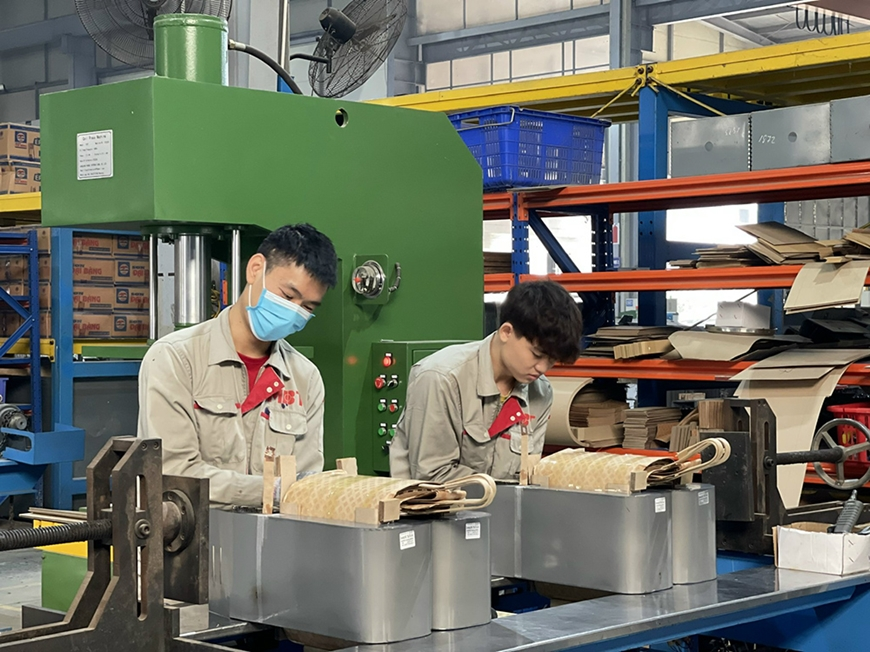 |
| Illustration photo: qdnd.vn |
Statistics show that although hundreds of thousands of businesses are established each year, most of them are micro-enterprises with low management skills, weak technological innovation capacity, and a lack of technology, marketing, and financial experts. The SME support program currently lacks linkages between ministries, sectors, and localities. The financial mechanism is unstable, and business associations operate mainly on self-funded funds, failing to promote the role of policy.
In addition, SMEs still face many difficulties in accessing credit capital from banks. In general, accessing finance through credit guarantee funds in the past has not been effective due to many reasons, including subjective reasons in the management and operation of the fund as well as from the enterprises/projects requesting support, which are still weak. The SME Development Fund continues to promote lending activities for two priority groups: innovative start-up SMEs and SMEs participating in industry clusters. Although there have been many efforts, it has not really met expectations compared to market demand.
In addition, most SMEs cannot access land in industrial parks and clusters due to high costs, although Decree No. 35/2022/ND-CP dated May 28, 2022 of the Government has added a regulation that industrial parks must reserve at least 5 hectares of land or at least 3% of the total land area of the industrial park for lease to SMEs, supporting industry enterprises, and innovative enterprises. The Land Law (amended) was officially passed by the 15th National Assembly in January 2024, in which, policies to support production and business premises for SMEs have been specifically stipulated in Clause 6, Article 202 of the law. Currently, SMEs are very hopeful that Resolution No. 68-NQ/TW of the Politburo will soon be put into practice to solve difficulties in accessing land and production premises.
Increasing capital supply for small and medium enterprises
Currently, Vietnam's position, prestige and role in the international arena are increasingly enhanced, continuing to be a destination attracting investment resources, technology, knowledge and management of many large economic groups in the world. With some advantages in terms of stable macroeconomics, improved business investment environment and investor confidence, new economic development areas such as digital economy, green economy, circular economy... and with 17 signed free trade agreements creating advantages for Vietnamese enterprises to participate deeply in the global value chain; forming new value chains and links. In that context, many studies by domestic and international organizations have assessed that Vietnamese SMEs have an extremely important position and role in economic development, currently together with large enterprises and enterprises with foreign direct investment (FDI) contributing to the successful implementation of the economic growth target of more than 8% by the end of 2025; creating a foundation for achieving double-digit growth in the 2026-2030 period.
In order for SMEs to accelerate, break through and develop strongly, contributing to the rapid and sustainable development of the country in the new era, in addition to current policies, in the coming time, it is necessary to implement the following contents: Amend the Law on Support for SMEs in the direction of regulating the implementation responsibilities of each ministry, sector and locality, with clear regulations on the rate of SMEs having access to capital, technology, markets, participating in industry clusters and value chains; form a national SME support ecosystem through the establishment of a regional SME support center closely connected with the Ministry of Finance, the Ministry of Science and Technology, the Vietnam Association of SMEs and local SME associations, universities and research institutes to support research and development activities, technology transfer and strategic consulting. Plan a pilot of 34 innovative industrial parks specifically for SMEs, including support for access to production and business premises, logistics infrastructure and co-working spaces.
In addition, strongly improve financial mechanisms through the application of financial technology (fintech) to evaluate the credit transmission system (based on electronic data, taxes, invoices, etc.). Upgrade the SME development fund with a capital scale of VND 20,000 billion to perform main functions such as: Lending to SMEs; lending to startups; providing initial capital for innovative startup incubator projects; investing in local investment funds; private investment funds to increase capital supply for innovative startups; receiving and managing loans, sponsorships, aids, contributions, and entrustments from organizations and individuals supporting SMEs. Develop and perfect mechanisms and policies to support SME associations at the central and local levels with the most favorable conditions to participate in programs, projects, research topics, consulting, criticism, dissemination, propaganda, timely updating of new policies and social appraisal, providing public training services, granting practice certificates for activities in the sectors and fields under the management of ministries and ministerial-level agencies according to the provisions of law.
In the era of digital transformation, green economy, circular economy and in-depth globalization, countries aim to build a dynamic, creative and highly adaptive business sector. In which, SMEs are no longer simply a "massive force" but are positioned as a "fundamental driving force" to provide inclusive, creative and sustainable growth. Even in difficult times, SMEs still strive to maintain production and business activities, demonstrating social responsibility to the community. Faced with the development requirements in the new era, SMEs, the vast majority of which belong to the private economic sector, must overcome many challenges to truly become the pioneering force, the most important force in the country's socio-economic development. To fully promote the role, potential and advantages of SMEs in the new development period, supporting the development of SMEs is not only an economic task but also a comprehensive social development and international integration strategy. In the long term, Vietnam needs to build a synchronous, long-term, and responsible policy system.
Source: https://baosonla.vn/kinh-te/doanh-nghiep-nho-va-vua-la-dong-luc-nen-tang-cho-phat-trien-Ow0a4MrNR.html



![[Photo] President Luong Cuong receives Chairman of the House of Representatives (Lower House) of the Republic of Belarus Igor Sergeyenko](https://vphoto.vietnam.vn/thumb/1200x675/vietnam/resource/IMAGE/2025/9/1/a67d61e41405410999a43db45a0ba29c)
![[Photo] Ho Chi Minh City is filled with flags and flowers on the eve of National Day September 2](https://vphoto.vietnam.vn/thumb/1200x675/vietnam/resource/IMAGE/2025/9/1/f493a66401844d4c90919b65741ec639)

![[Photo] General Secretary To Lam presides over the welcoming ceremony for First Secretary and President of Cuba Miguel Diaz-Canel Bermudez](https://vphoto.vietnam.vn/thumb/1200x675/vietnam/resource/IMAGE/2025/9/1/4f6ef5136b90463db3ebdd3d3d83ebe4)
![[Photo] General Secretary To Lam holds talks with First Secretary and President of the Republic of Cuba Miguel Diaz-Canel Bermudez](https://vphoto.vietnam.vn/thumb/1200x675/vietnam/resource/IMAGE/2025/9/1/a2eab2ee4e4a4a81a8c605e46055ab78)
![[Photo] Chairman of the National People's Congress of China Zhao Leji visits the Ho Chi Minh Mausoleum](https://vphoto.vietnam.vn/thumb/1200x675/vietnam/resource/IMAGE/2025/9/1/45b2a2744fa84d27a59515b2fe53b42a)























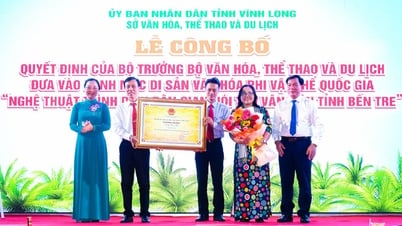




























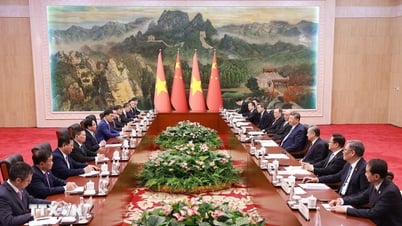












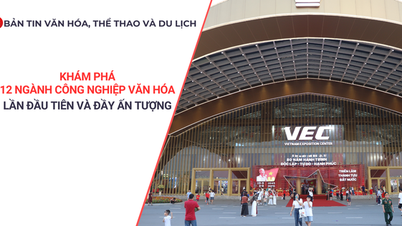





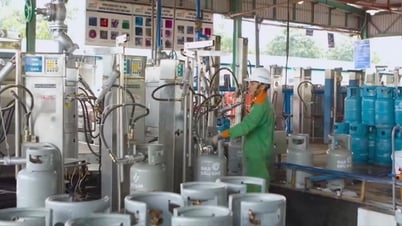
















Comment (0)